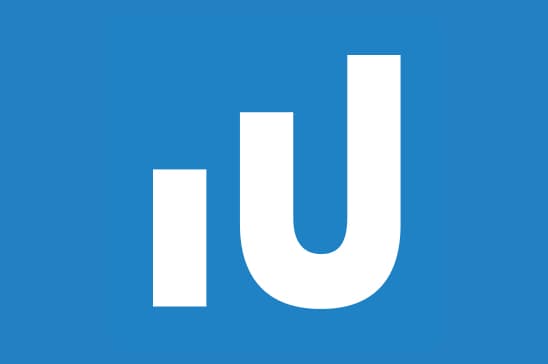How to Become Financially Independent in 7 Steps
Early retirement. So many of us have thought about it. But few of us live it. How can we spend the rest of our lives doing what we want rather than what we currently must? In other words, we wonder how to become financially independent.
Wouldn’t it be nice to finally spend your time writing that novel you’ve always wanted to? Or maybe you have a true passion for charity and service work and wish you could devote your life to a cause.
Maybe you just want to be really rich. Really happy. And retire early. Yet, as Financial Samurai reports, less than 1% of Americans retire before the age of 50. The dream of financial independence is difficult to achieve. But it is achievable.
In order to do so, you have to put in hard work. And you have to have a plan.
I’m here to help you create that plan. Here’s your road map to financial independence:
- Taking Stock of Your Financial Health
- Deciding Your Long-Term Goals
- Creating a Rigorous Budget
- Starting an Emergency Fund
- Paying Off Your Debt
- Increasing Your Income
- Investing in the Market… and Yourself
Before we dive into the 7 steps you need to take to become financially independent, we need to dispel some myths out there about financial freedom.
Six Financial Independence Myths
No. 1: There’s No Rush to Start Investing
The major key to becoming financially free is to be able to invest as much of your money as possible into a wealth-building portfolio. But you may think that you aren’t ready to invest yet. There may be a number of reasons for this. For starters, you may think you need to earn more money. You think your salary is too low to divert some of it into a stock portfolio. Or you have too many other bills to pay.
If there is any way you can start investing money now, do it. That is because of the power of compound interest. This is really the key to helping you become wealthy in the long run. Compounding is when you earn returns on your returns.
Say you have a stock portfolio of $100,000 and you earn 10% in a year. You’ll have made $10,000 on this money, which you can now invest as well. When you do so, you’ll earn 10% not just on the $100,000 put also on the additional $10,000 you’ve reinvested the next year. If you earn 10% a year on the initial $100,000 plus all the gains you’ve made, the compounding returns will leave you with over $259,000 by the end of the 10 years. That’s a nice triple-digit return without having to do much work. So the sooner you start investing money, the sooner you can take advantage of the huge gains you can get from compound interest.
No. 2: Income Is Wealth
Many people confuse the concept of wealth with having a high income. But the two are not the same. You can have a high income and very little wealth. After all, we’ve heard lots of stories of millionaire athletes and musicians spending themselves into bankruptcy.
Clearly, their high incomes did not translate into high long-term wealth. Financial freedom involves maximizing your income, but it is much more important to take the whole picture into account. That means continuing to ensure that you are spending less money than you are earning. This is the key.
Whether you make $50,000 or $500,000 per year income, you need to be living within your means. Let your cash outflows be significantly less than your cash inflows. A simple equation to account for wealth is to subtract your total assets from your total liabilities. The more money you earn and the less money you spend, the more assets you will accrue.
On the liabilities side, you need to be minimizing the amount of debt you take on. Debt subtracts from your wealth. So the key to becoming financially independent is not making as much money as possible. Rather, maximize your income while spending less than you make and minimize debt. This is the way to financial independence.
No. 3: You Must Be an A+ Harvard Grad to Become Financially Independent
Nope. An academic pedigree is not necessarily the best predictor of financial independence and true wealth. Though there are two major exceptions to this: law and medicine. But if you work in a plethora of other areas, being a straight-A high school student isn’t going to necessarily be an asset on your road to financial freedom.
This is actually good news. It shows that it’s possible for almost anyone to become financially independent if they put in the work and follow the best practices as outlined in this article. You are so much more than your high school grades or the name of the university printed on your bachelor of arts degree in medieval philosophy.
Again, it comes down to the basics. Maximize the money you do make. Spend less than you earn. Invest as much as you can as soon as you can. That’s what’s truly going to get you where you want to go.
No. 4: Wealth Is Only About Money
Money is an essential factor when we talk about wealth. But at Investment U, we are big believers in the notion that it is still only one core part of wealth. There are others. A lot of the others have nothing to do with how much money or tangible assets you have, but how much time you have to pursue your major interests.
For example, why do you go to your job? I mean the main reason. When you aren’t financially free, it’s to support yourself. But once you have enough money where work becomes optional rather than necessary, you suddenly have much more control over what work you do and when.
Then you can truly turn your passion into your full-time job because you aren’t relying on your primary occupation to pay your bills. For many people, financial freedom may mean retiring early and enjoying lots of cocktails on a tropical beach. And that’s great! But many people instead choose to work, not just because they have to but also because they derive deep meaning and happiness from the work they are passionate about.
Having the time and freedom to pursue your own meaningful work can be one of the biggest benefits of financial freedom. Along with having more time to pursue other endeavors like cultivating your most meaningful relationships – family and close friends – traveling the world and gaining rich, new experiences.
No. 5: You Don’t Have to Worry about Tax Rates
Sure you don’t. If you don’t care about becoming wealthy. But since you’ve read this far, you likely do and therefore you must take tax consequences into account. After all, if you earn $100,000 but 33% goes to taxes, you’ve not only lost $33,333, but also any compound returns you could have earned on that additional money.
So always take account of the tax consequences of all of your money moves. One way to do this is to make sure you are funding any tax-free or tax-advantageous retirement and savings, health and education accounts as much as possible. We should all pay whatever taxes we owe, but there’s nothing wrong with minimizing that number as much as humanly possible. Always take this into account.
No. 6: The People Around You Don’t Matter
Definitely false. You need to surround yourself with people who are going to support your long-term goals and the lifestyle you need to live in order to become financially free. If you hang out with lots of friends who love spending lots of cash at bars, restaurants, vacations, clubs and concerts you’re not going to save much. And you probably won’t have much left over to invest.
Similarly, if you decide to be in a serious romantic relationship or get married, make sure it’s to a person who shares your long-term financial goals and is really committed to it. Now let’s get to the 7 steps…
7 Steps to Becoming Financially Independent

No. 1: Taking Stock of Your Financial Health
To get where you want to go in life and reach financial independence, you first need to know exactly where you – and your bank account – are. The first step on your road to becoming financially independent is taking stock of where you are right now.
This requires being rigorously honest with yourself which – believe me, I know – isn’t always fun or easy. But here’s what you need to take note of in order to do a full-on financial checkup.
- Income – Understanding your financial health starts with a thorough understanding of your income. Of course, this begins with your salary or wages. Not only do you need to note your gross pretax income, but also your true take-home pay after taxes. Also account for 401(k) and withdrawals for other retirement accounts, health insurance premiums and any other deductions from your gross pay. Income starts with salary, but it does not end there. Other sources of income to note include:
.
- Investment Income – If you have money in the markets, whether in bonds, stocks, metals or elsewhere, you should be accruing income from this investment. This can be through interest, dividends or capital gains..
- Passive Income Streams – Are you generating income through affiliate marketing on a website, by renting out real estate you own or even through interest on a large savings account? Take note of your passive income streams.
- Side Hustles – Do you work a gig in addition to your main job? Perhaps you are a freelance marketer, have a small retail business, or drive an Uber or Lyft. Include this in your total income as well.
- Expenses – This side of the equation is less fun to total, but here is where it is especially important to be honest with yourself..
- ..
- Housing – Do you pay a mortgage or rent an apartment? Chances are this is where a large chunk of your monthly change is going. You can also include your utility expenses here: utilities, cable and internet, and insurance on the property.
- Household and Living Expenses – Household expenses can include everything from your groceries, laundry detergent, gasoline for your car and anything else included in your typical day to day expenses.
- Debt Payments – Other than your mortgage, what debt do you currently have? Credit card debt? Auto loans? Student debt? Make sure to account for all of your debt payments here.
- Social – As the ancient Greek philosopher Aristotle once told us, the human being is a social animal. Socializing is extremely important for a healthy life, but you must make sure your spending is not out of control.
Does taking stock of your financial health sound like a lot of work? It can be, but there are plenty of financial and budgeting apps that can help make tracking and budgeting for these items much easier. They can even automate part of the process.
Now that you’ve taken stock on where you are today, let’s take a look at your long-term goals and cultivate a path toward achieving financial independence.
No. 2: Deciding Your Long-Term Financial Goals
Becoming financially independent can mean different things to different people. Are you looking to pay off all of your debt? Retire early? Or maybe work the career you’ve always wanted to have but couldn’t because it doesn’t pay the bills?
Whatever financial independence means to you, it’s important to note your ultimate goal and even to visualize yourself living it.

But the end game is not your only goal.
You will have intermediate steps along the way. After you have taken stock of where you are financially, you should have a better sense of the steps you need to take.
Intermediate goals may include:
- Increasing your income
- Building up your emergency funds
- Getting out of debt
- Decreasing your living expenses to a manageable level
- Earning a significant return from investment income
- Being able to meet all potential liabilities like car loans, real estate purchases and paying for your children’s college with cash
- Quitting your job
- Starting your dream business
- Buying a yacht
- Investing in a film production
- Buying an original painting by Francis Bacon
- The sky’s the limit!
But you have to walk before you run. Meeting your smaller goals and challenges will help encourage you to continue to pursue the standard of living you truly seek in life.
No. 3: Creating a Rigorous Budget
Living richly later means living frugally now. To do this successfully and become financially independent, you need to create a rigorous budget and stick to it, based on the data you’ve collected in the previous steps.
The worst possible way to do this is to try and track everything by hand. The day of balancing the checkbook is over. And you’ll save yourself some hand cramps.
In fact, you’ll want to use technology to automate this process as much as possible. Find an app that will do this for you, like Mint or one of the others in the article I linked to above.
While transactions can be entered manually, a better method is to tie your bank account and debit or credit cards to the system so that everything deducted or charged is automatically accounted for in the app.
An important point is not to create too many different categories of transactions. Otherwise the app can become inefficient and overwhelming. You might become even more stressed, rather than less.
Here is how I’ve set up my app categories:
- Income
- Paychecks
- Other
- Savings
- Emergency Fund
- Investments
- Debt
- Credit Cards
- Student Loans
- Car Payments
- Housing
- Rent
- Utilities
- Expenses
- Groceries & Household
- Social / Entertainment
- Other / Misc.
No. 4: Starting an Emergency Fund
According to Bankrate, 28% of Americans do not have an emergency fund.
But unfortunately, emergencies happen. You might get sick and need to go to the emergency room. Your air conditioning might break down. Or, maybe worst of all, you might lose your job.
Having an emergency buffer is essential to being able to handle such situations. But how much money should you be saving in your account?
One personal financial expert recommends starting small with $1,000, the first of what he calls financial “baby steps.”
While this may not be enough money to handle many emergencies, at least it’s a starting point on your way to eventually becoming financially free.

Then, depending on how much high-interest debt you have, you can weigh and balance – stashing more cash in your emergency fund versus paying down your liabilities.
It is often recommended to have at least three to six months of your expenses covered in your emergency fund for that proverbial rainy day.
Make an effort to contribute to your fund every month. Refer to your monthly budget, cut down on expenses where possible and use automatic deductions from your everyday checking account to pad your savings.
Because this is intended for emergencies, you’re going to want to be able to access your cash quickly. Use a liquid account or investment to hold your savings.
This could be a savings account with a high interest rate, a money market fund, certificate of deposit or a similar type of financial instrument.
No. 5: Paying Off Your Debt
The average American now has about $38,000 in personal debt. That doesn’t include mortgages.
That’s scary.
While building your emergency savings fund, you should also be making an effort to tackle your debt. Being debt-free is one of the most important aspects of achieving financial independence.
There are different methods you can use in order to pay down your debt. Conventional wisdom argues that you should start with your highest interest debt first.
This makes sense because the higher the interest rate, the more money it’s costing you. On the other hand, some recommend working your way up to your biggest outstanding debt.
This is recommended for psychological and motivational reasons. Think about a comparison with dieting.
Losing weight is daunting. But once you lose those first few pounds, you’re often inspired to keep going.
Debt works the same way. After you’ve paid off your first credit card debt or your car loan, you’ll be more inspired to keep hacking away at your liabilities.
Regardless, the sooner you can pay down your debt, the better off your financial health will be.
Moreover, avoid taking on more debt. Cut up extra credit cards. Don’t lease that fancy new car you want just to keep up with the Joneses. Perhaps even rent, rather than taking on a mortgage.
Debt – even so-called “good debt” like a home mortgage – can completely cripple your ability to become financially independent. So work hard at decreasing and eliminating it.
No. 6: Increasing Your Income
It is often easier to decrease your monthly expenses than to increase your salary. After all, it’s often scary to waltz into your manager’s office and demand a raise.
Nevertheless, there are ways to increase your monthly income without needing to to make that ask.
For starters, there are often one-off income deals that can help you earn a quick spurt of cash. For example, you can fill out online surveys or participate in a focus group or psychology experiment.
If you know someone who is going away on vacation, you can offer to walk their dog or house sit for them. Freelancing as a writer, designer or other helpful role is a great way to make additional money.

Finally, you can consider the possibility of taking on a second job, which is difficult but not impossible. Perhaps settling for something in the gig economy, like driving an Uber can help you earn more money on top of your base salary.
Oh, and while this is a much longer-term play, make sure you are enjoying the benefits of any employer match program for your retirement plans or 401(k).
And Finally, No. 7: Investing in the Market and Becoming Financially Independent
To really become financially independent, you’re going to have to do a lot more than work your job. You’re going to have to invest your money to earn high returns and enjoy the benefits of compound interest.
There are plenty of different modes and opportunities for investing out there. For example, you can do something as simple – though with less potential reward – as investing in some market index funds. This can be effective if you have acquired limited market data and knowledge but still want to earn that return.
But If you are or become a more knowledgeable or experienced investor, you can do your own financial planning and pick your own securities. Your portfolio could include stocks, bonds, commodities, options, currencies or any other combination of the many financial assets out there.
As your net worth continues to increase, you may even decide to invest directly in business ventures or become an entrepreneur yourself.
Finally, remember that your road to financial independence is ultimately an investment in yourself. You deserve the freedom that you crave.
I hope this article has helped you understand the basic steps of how to become financially independent. And if you’re interested in learning more about investing and growing your nest egg, I highly recommend taking a look around the Investment U website.
It’s chock-full of articles on everything from stock trading basics to investing in precious metals to tips on how to beat the market – even when it’s in steep decline.
Financial independence is yours for the taking. Don’t wait to start reclaiming the rest of your life.
The time to get on the path is now.
About Brian M. Reiser
Brian M. Reiser has a Bachelor of Science degree in Management with a concentration in finance from the School of Management at Binghamton University.
He also holds a B.A. in philosophy from Columbia University and an M.A. in philosophy from the University of South Florida.
His primary interests at Investment U include personal finance, debt, tech stocks and more.





